
It’s one of the most astounding phenomena on earth. Every year in spring and fall, billions of birds worldwide are on the move to their seasonal homes. Everyone’s heard a fact or two about migration, but specific details about these major movements aren’t as well known. Here’s a primer on how these feathered travelers make their journeys.
Where do they go, and when?
Not all birds are great travelers; some stay home. A downy woodpecker or a chickadee might spend its whole life close to where it hatched. Others do move, but only short distances. For example, certain kinds of grouse migrate by walking, putting only 10 or 12 miles between their summer and winter territories.
Birds of a feather don’t always flock together when it comes to migration. Some American robins fly from Canada to Florida in fall, but others in mild climates stay in the same place all year. An individual robin might even go south one year but remain up north the next.
On the other hand, some species make astonishing journeys every year. American golden-plovers travel from the tundras of northern Canada and Alaska to southern South America in fall. Arctic terns fly even farther, moving from the cold, northernmost Canadian islands or the north side of Greenland all the way to the edge of the Antarctic. They log some serious mileage—their yearly round trip can total more than 25,000 miles.
Bu hikaye Birds & Blooms dergisinin October/November 2019 sayısından alınmıştır.
Start your 7-day Magzter GOLD free trial to access thousands of curated premium stories, and 9,000+ magazines and newspapers.
Already a subscriber ? Giriş Yap
Bu hikaye Birds & Blooms dergisinin October/November 2019 sayısından alınmıştır.
Start your 7-day Magzter GOLD free trial to access thousands of curated premium stories, and 9,000+ magazines and newspapers.
Already a subscriber? Giriş Yap

Basics of Hydroponics
Use these top tips and plant picks to have a successful soil-free garden
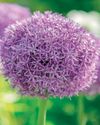
Rooted in Resilience
These hardy perennials will thrive in most zones
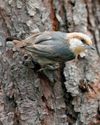
Social and Supportive
Brown-headed nuthatches take a helpful approach to raising their young
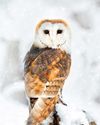
All About Owl Pellets
And why you should give a hoot about them
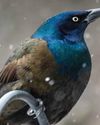
Ask the Experts
Advice from our pros about houseplants, bird feeding and more

BRING THE OUTDOORS IN
Making a terrarium is about as close as you can get to a Zen DIY project. Once you have gathered the proper materials and squared away your plant selections, it's as simple as layering it all together and watching your mini ecosystem thrive. Here, I'll walk you through my foolproof process and cover all the required elements for good filtration, healthy soil, strong root growth and resistance against fungus and disease.

GROW THIS. NOT THAT
Six easy-to-grow houseplants—and six that may not be the right choice for you
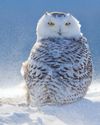
Winter MAGIC
Forecasts may be frigid, but grab your binoculars because birding opportunities are still incredible
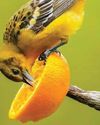
Sense or Nonsense? - Why some birds can taste and smell - but others can't
Does a porcelain berry taste like a blueberry to a gray catbird? Does a block of lard smell like frying bacon to a northern flicker? The short answer is no. While some avian species do have a well-adapted sense of taste or smell, they can't distinguish between flavors and odors the way humans can. They're not picking up every ingredient in the suet you put out, says José Ramírez-Garofalo, an ornithology researcher at Rutgers University in New Jersey and the director of Freshkills Biological Station in Staten Island, New York.

Maple Mania - Amazing facts about this fall foliage mainstay
Amazing facts about this fall foliage mainstay